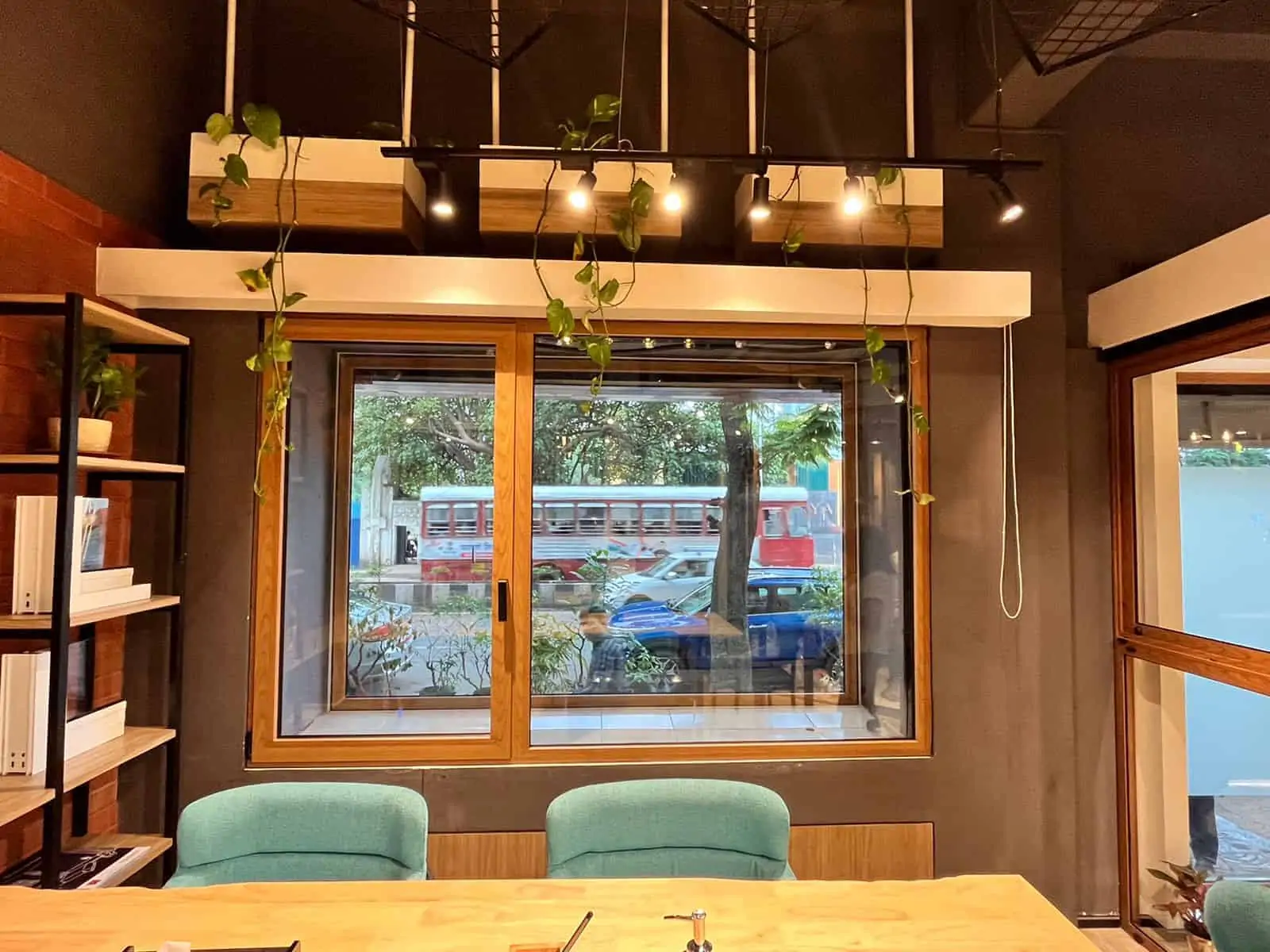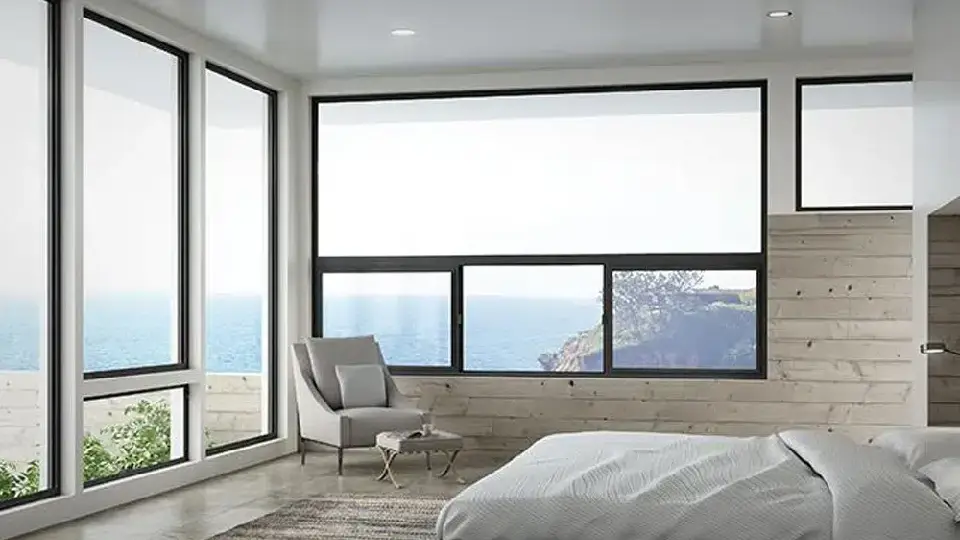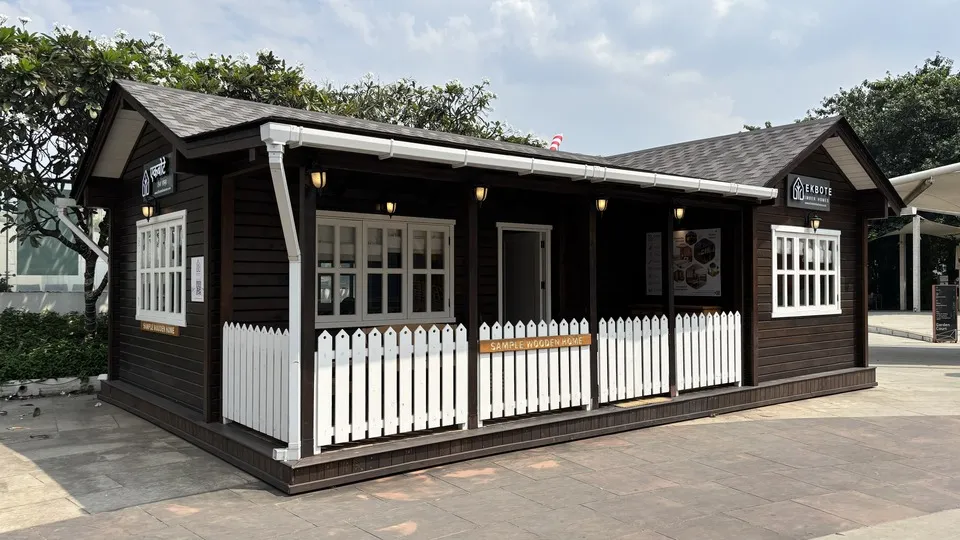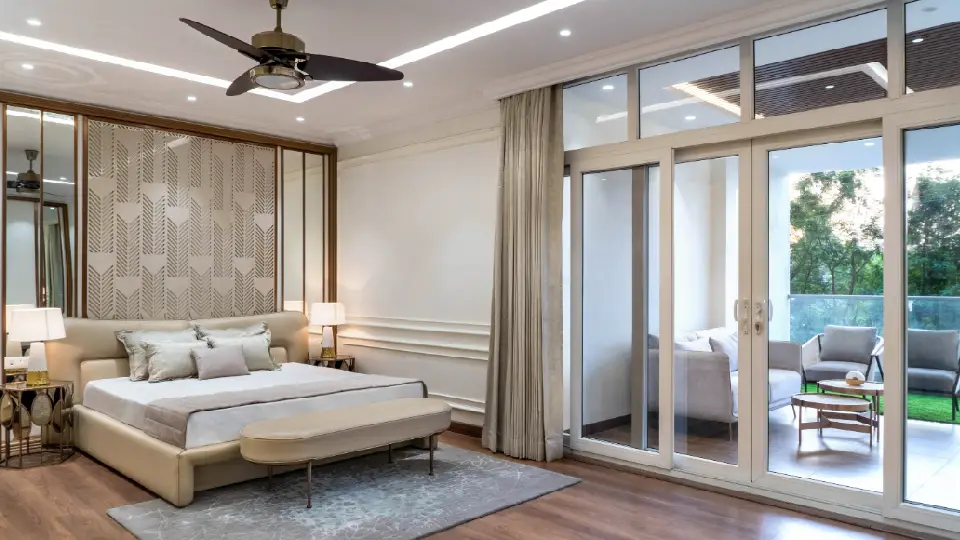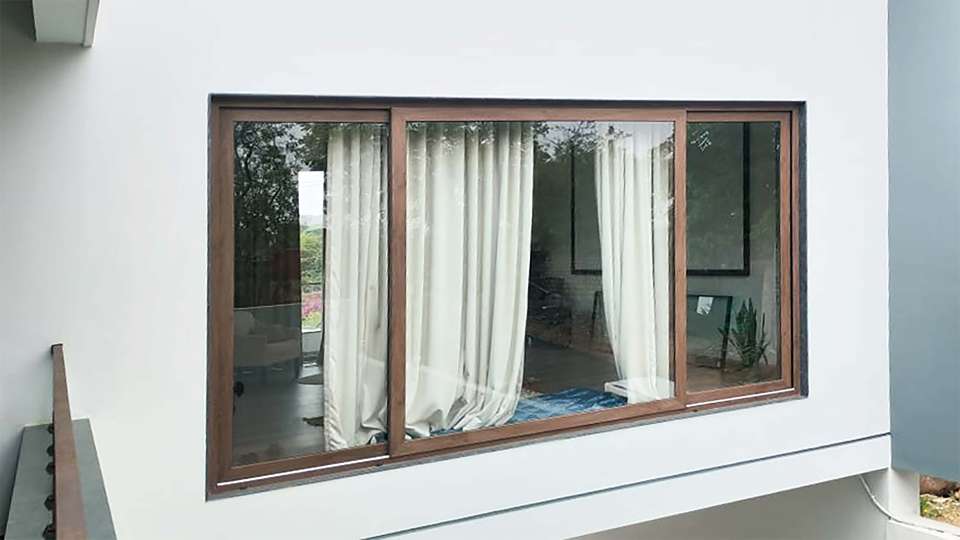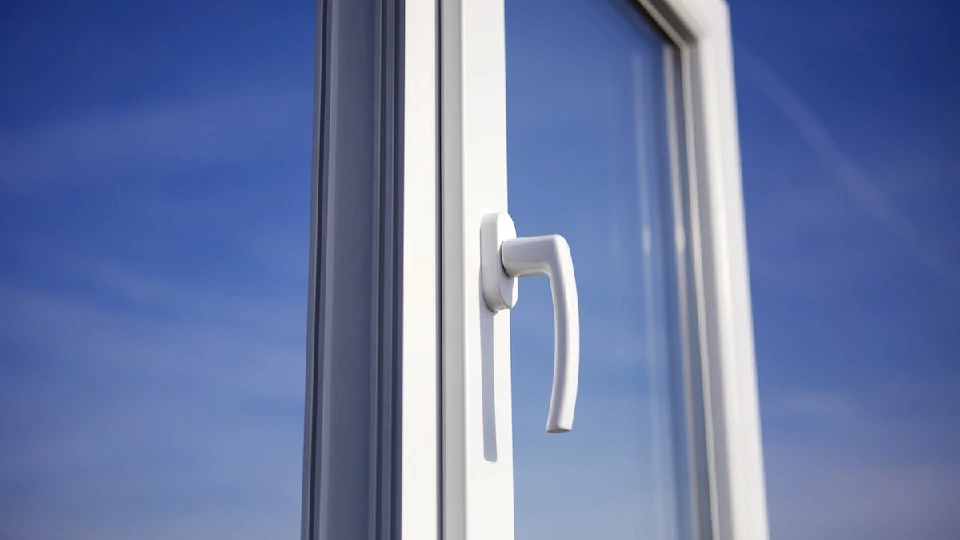In today’s fast-paced lifestyle, noise pollution has become an unavoidable part of our daily lives. From loud horns to construction disturbance, city homes are increasingly exposed to high levels of noise. This constant exposure not only disrupts comfort and productivity but also affects our overall health, leading to long-term illnesses. Therefore, for tackling this rising issue and retaining peace in our homes, sound proof windows are emerging as an effective solution. Designed to minimise external noise while maintaining natural light and aesthetics, these specialised noise-insulating/sound-dampening windows provide homeowners with a practical way to create a quieter and more peaceful living space. Read the complete article to know more about acoustic glass windows, key parameters to consider, STC rating, and the benefits these soundproofing windows bring to Indian homes.
Contents
- 1 What are acoustic glass windows?
- 2 Why do Indian homes need soundproofing?
- 3 Acoustic parameters of soundproof glass windows
- 4 Performance ratings to watch for in sound proof windows for homes
- 5 Noice insulating acoustic glass windows – STC rating
- 6 Things to consider before buying acoustic glass windows for your home
- 7 FAQs
- 7.1 What is the difference in Sound Transmission Class (STC) and Weighted Sound Reduction Index (Rw) ratings for acoustic glass versus standard glass?
- 7.2 What is the expected dB reduction range for typical noise insulating acoustic glass windows in urban environments?
- 7.3 How do sound-dampening windows perform in high-rise apartments compared to ground-floor homes?
- 7.4 What is the impact of using secondary acoustic seals in high-performance systems?
- 7.5 How does custom frame design (aluminium, uPVC, timber) affect the noise insulation values of soundproofing glass windows?
- 7.6 How do environmental conditions like humidity and temperature affect acoustic interlayer performance?
- 7.7 How does the performance of residential-grade acoustic windows differ from commercial-grade acoustic windows?
- 8 Noise proofing demystified with Eternia windows and doors
What are acoustic glass windows?
Before going into detail, let’s first understand what an acoustic glass window is and how it works. Acoustic glass windows reduce the noise level that enters a room through entryways. These windows are designed to minimise disruptions from external sources, such as traffic buzz, construction sounds, and other loud noises, thereby creating a peaceful and quiet living environment in your home. They typically have a sound-blocking glass mechanism that uses constructive interference principles.
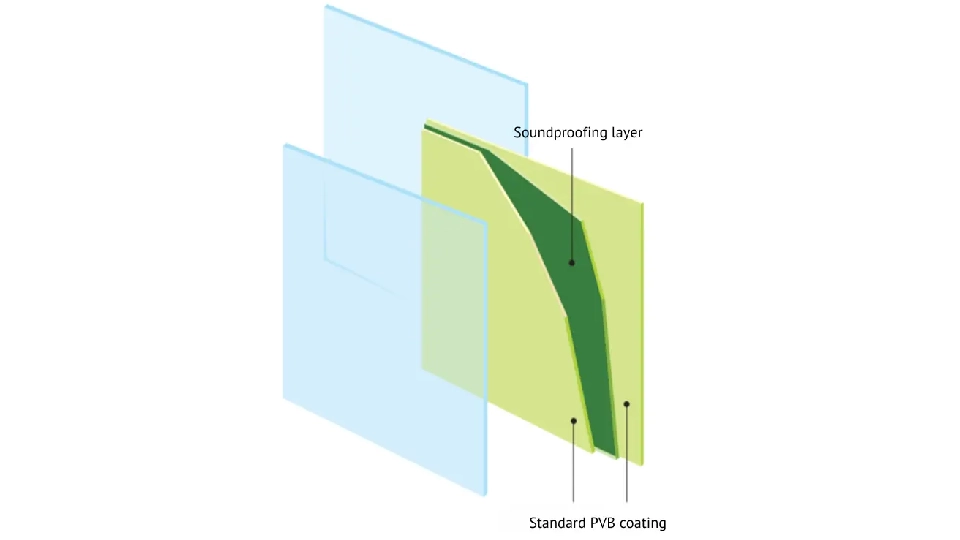
Image Source: chronoglass.com
Acoustic glass is made by overlaying two sheets of glass with Polyvinyl Butyral or PVB film in between. This layer serves as an acoustic membrane, joining both glass panes together to give it a unified look. The PVB film disrupts the pathways of sound waves and significantly minimises the level of external sound vibrations entering the space.
Why do Indian homes need soundproofing?

Image Source: winglass.com.pk
Soundproofing is a major aspect of building design and architecture today. It is important as it can affect the productivity and well-being of the people living in a bustling environment. Here’s a detailed breakdown of why soundproofing is a necessary need in Indian homes:
- High noise pollution: Urban places experience a large amount of noise from traffic, construction, and city life, which needs to be effectively managed. Therefore, soundproofing solutions like acoustic glass windows become an essential requirement in these areas.
- Dense urban living: In metropolitan cities, people live in closely situated buildings. Hence, to maintain their privacy and comfort, soundproofing is a must.
- Health benefits: Noise pollution may also lead to long-term health issues, and for older members in the home, the consequences can be more severe.
- Improved sleep and concentration: Soundproofing creates a serene space, which not only improves your sleep cycle but also enhances concentration, making you more productive.
- Better living environment: With a better soundproofing system, you can transform a chaotic environment into a peaceful space.
- Higher property worth: Properties with soundproofing features, such as noise-insulating glass windows, have higher values in the current market.
Acoustic parameters of soundproof glass windows
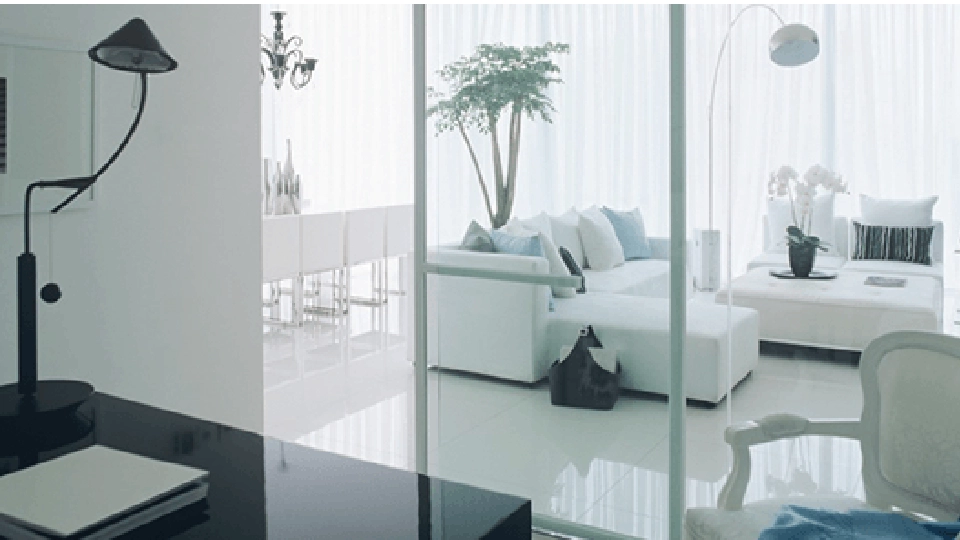
Image Source: glasxperts.com
While choosing acoustic glass windows for sound proof homes, several parameters play a key role:
- Glass thickness: The glass thickness of noise-insulating windows typically ranges from 6.4 mm to 12.8 mm for residential acoustic glazing, where thicker glass means better noise insulation.Beyond a point (12-15 mm), the incremental acoustic gain reduces. This is why other strategies (lamination, cavity depth) must be combined.
- Lamination interlayers: Laminated glass consists of two or more layers of glass that are permanently joined with one or more polymer interlayers. The polymer interlayers can be PVB (polyvinyl butyral), EVA, or SGP (SentryGlas Plus). Acoustic-grade PVB interlayers specifically dampen vibration transmission and are more effective than standard PVB. Moreover, multiple interlayers (e.g., tri-laminates) provide enhanced reduction of mid- and high-frequency sounds (voices, honking, alarms).
- Air gaps in double glazing: In Insulated Glass Units (IGUs), the air gap acts as a sound buffer. Optimum acoustic performance comes from 12-20 mm cavity depth.However, wider gaps (>20 mm) show diminishing returns, and excessively narrow gaps (<8 mm) add little benefit. Asymmetrical IGUs (different glass thicknesses on each side) are the best option for soundproofing glass windows.
- Frame quality: Frames contribute as much as 30-40% of the total acoustic performance of a window. UPVC frames are naturally strong at damping sound due to multi-chambered profiles. However, aluminium frames require thermal/acoustic breaks (polyamide inserts) to avoid noise bridging.
Performance ratings to watch for in sound proof windows for homes
- STC (Sound Transmission Class): Lab measure of overall airborne noise reduction.
- Rw (Weighted Sound Reduction Index): European equivalent, commonly used in India for imported glass.
- OITC (Outdoor-Indoor Transmission Class): Critical if the home is near traffic corridors, airports, or metro lines, since it focuses on low-frequency sounds.
Residential acoustic comfort typically requires STC/Rw ratings of 35-45, while hospitals, hotels, and studios may demand 50+.
Noice insulating acoustic glass windows – STC rating
When people are analysing building materials and acoustical products for noise reduction, they look for the Sound Transmission Class or STC rating of the material. Similarly, by knowing the STC rating of the acoustic glass window, we can estimate how much sound it will block. A higher rating means your window can block sounds more efficiently.
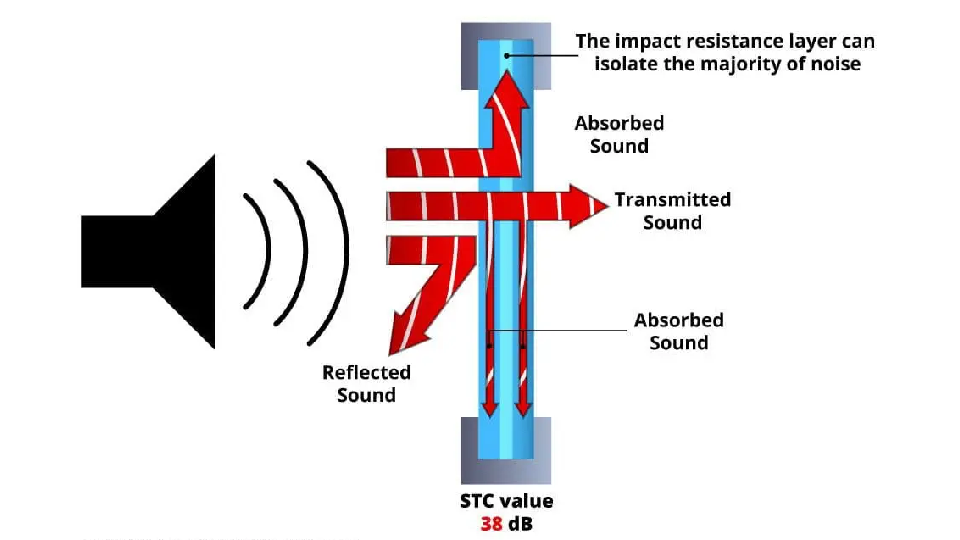
Image Source: dynamicfenestration.com
To give you a clearer idea of how STC ratings work, here is a simple chart:
| STC rating | Performance |
| 50-60 (Excellent) | Loud sounds can be heard faintly or not at all |
| 45-50 (Very good) | Loud sounds can be heard, but are very faint |
| 35-40 (Good) | You can hardly hear loud speeches |
| 30-35 (Fair) | You can hardly hear loud speeches fairly well |
| 25-30 (Poor) | Normal speeches can be understood easily |
| 20-25 (Very poor) | Soft speech can be heard and understood |
Things to consider before buying acoustic glass windows for your home
When investing in acoustic glass windows for your home, it is very important to look beyond just the glass. Here are some key factors that you must consider while buying it:
- Quality of window frames and seals: Even the best acoustic glass window will not be effective if the construction of the frames is not good or the seals are weak.
- Glass thickness and acoustic rating: As we discussed, the STC rating indicates how much sound will be blocked by the glass. The higher rating refers to better noise reduction. Additionally, glass thickness is also very important, as it directly affects their ability to dampen sound.
- Certified installers and warranty coverage: Proper installation of an acoustic glass window is very important to get effective results, and a certified installer has the proper knowledge and experience that ensure that the window is fitted properly. Moreover, for a better peace of mind, a good warranty coverage on both the product and installation is also very necessary
- Location-specific noise levels: Always examine the specific noise challenges in your areas. Homes near highways or an airport will require higher-performance noise-insulating windows.
Acoustic glass windows are modifying Indian homes, transforming them into peaceful spaces amidst the chaos. Whether you are upgrading your space or building a new home in a bustling area, sound proofing acoustic glass windows with sturdy frames is an advanced, long-term solution for homes. As noise pollution continues to rise, upgrading to the best sound dampening acoustic windows is no longer a luxury; it’s a necessity for an improved lifestyle.
FAQs
What is the difference in Sound Transmission Class (STC) and Weighted Sound Reduction Index (Rw) ratings for acoustic glass versus standard glass?
Acoustic glass has a higher Sound Transmission Class (STC) and Weighted Sound Reduction Index (Rw) than standard glass. That’s why acoustic glass can block more noise. Standard glass has an STC rating between 27-30, whereas acoustic glass has an STC rating between 35-45 and more.
What is the expected dB reduction range for typical noise insulating acoustic glass windows in urban environments?
The dB reduction range of acoustic glass windows depends on the type of glass used. Acoustic laminated glass can reduce sound transmission by 25-35 dB. On the other hand, single-glazed glass offers a sound reduction of 10-15 dB. Moreover, advanced solutions can achieve up to 51 dB reduction in extreme cases like urban traffic or air traffic zones.
How do sound-dampening windows perform in high-rise apartments compared to ground-floor homes?
Sound-dampening windows perform efficiently at any height, whether it is a high-rise apartment or a bungalow. In taller buildings, these windows perform even better because they are far from the noisy places. However, on the ground floor homes, sound proof windows may need a higher STC rating glass with good thickness for working well.
What is the impact of using secondary acoustic seals in high-performance systems?
Adding secondary acoustic seals in high-performance systems improves their ability to block sound. These seals act as an extra airtight barrier that stops the noise from leaking even through a small gap. Additionally, secondary acoustic seals keep out dust and drafts, making your home a comfortable and quieter place to live.
How does custom frame design (aluminium, uPVC, timber) affect the noise insulation values of soundproofing glass windows?
The frame, material, and design of acoustic glass windows strongly affect their ability to block noise. Aluminium frames can transmit more sound unless they have proper acoustic breaks. uPVC frames have a natural ability to dampen sound vibrations, giving better STC and Rw values. Similarly, sealing timber frames properly improves insulation and offers better noise reduction.
How do environmental conditions like humidity and temperature affect acoustic interlayer performance?
Noise-insulating windows can easily withstand harsh conditions like humidity, dust, and monsoon weather. Their panes are sealed with moisture-resistant spacers that prevent condensation, and their tight compression seals are so properly fitted that dust does not enter the gap. Thus, these factors usually don’t affect the performance of acoustic glass.
How does the performance of residential-grade acoustic windows differ from commercial-grade acoustic windows?
The main differences between residential and commercial-grade sound dampening windows lie in performance, requirements, and construction. Residential-grade acoustic windows focus on comfort and moderate noise control, while commercial-grade acoustic windows are suitable for environments with intense noise and solid safety standards. However, the core purpose of both sound dampening windows is to create a quieter environment.
*The featured image used in this article is from glasxperts.com
Noise proofing demystified with Eternia windows and doors
The fact that India has the worst noise pollution levels in the world is not unheard of. According to a survey conducted by W









